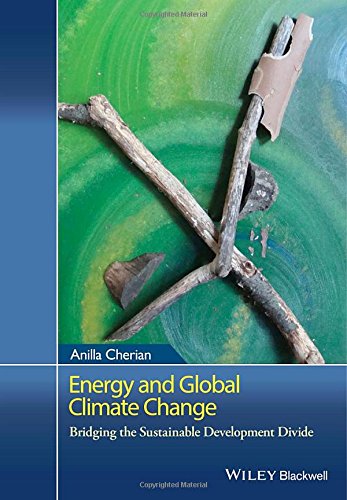

Most ebook files are in PDF format, so you can easily read them using various software such as Foxit Reader or directly on the Google Chrome browser.
Some ebook files are released by publishers in other formats such as .awz, .mobi, .epub, .fb2, etc. You may need to install specific software to read these formats on mobile/PC, such as Calibre.
Please read the tutorial at this link. https://ebooknice.com/page/post?id=faq
We offer FREE conversion to the popular formats you request; however, this may take some time. Therefore, right after payment, please email us, and we will try to provide the service as quickly as possible.
For some exceptional file formats or broken links (if any), please refrain from opening any disputes. Instead, email us first, and we will try to assist within a maximum of 6 hours.
EbookNice Team

Status:
Available0.0
0 reviewsEnergy and Global Climate Change: Bridging the Sustainable Development Divide focuses attention on two urgent global development challenges faced by the UN and its member states: access to sustainable energy for all, and global climate change. This book presents compelling evidence about an often neglected aspect of the energy-climate change-development nexus faced by millions of poor: problems caused by the use of inefficient and polluting energy sources, and the lack of access to sustainable energy services.
Based on a detailed examination of major UN global climate change and sustainable development negotiated outcomes over the course of several decades, this book argues in a powerful and insightful manner that intergovernmental negotiated outcomes aimed at solving the climate change and energy access challenges have been restricted by being placed in different negotiating silos. This “siloization” or compartmentalization has resulted in separate tracks of negotiated outcomes on two inextricably linked global development challenges; and, has thereby hindered prospects for integrated action.
This book points out that the existence of these two silos is especially hard to ignore in light of the urgent UN-led quest for an integrated and universal post-2015 development agenda anticipated to be anchored by new sustainable development goals on energy access and climate change. By addressing the heavy reliance on inefficient and polluting energy services which result in indoor air pollution and short lived climate pollutants that tragically impact millions of poor people, this book highlights the unique importance of integrated action on the energy-poverty-climate change nexus in the UN’s post-2015 development era.